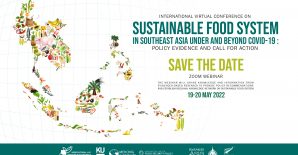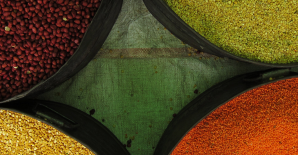News
Uzbekistan to end preferential terms for food importers
Individual companies will no longer benefit from preferential customs and tax arrangements on food imports starting on February 1. According to the presidential decree, some Uzbek importers have leveraged these benefits to monopolize the market and raise consumer prices. The decree aims to level the playing field for food suppliers entering the market and will be followed in April by a more comprehensive law on food security. – Tashkent Times
Tajikistan exports record growth in 2017
Tajikistan’s total exports in 2017 were valued at $1.2 billion, representing a 33.3 percent increase from the previous year according to its national statistics agency. Foreign trade turnover increased by 1.1 percent overall, with Russia and Kazakhstan remaining Tajikistan’s primary trading partners. Bilateral trade with Uzbekistan recorded 82 percent growth in a sign of improving diplomatic and economic relations between the two countries. – MENAFN
Kyrgyz MPs accuse government of agriculture's decline
Several members of Kyrgyzstan’s parliament accused agricultural ministry officials of unsatisfactory performance. According to the MPs, farmers are exporting cheap fresh fruits and vegetables to neighboring countries and receiving expensive processed goods in return because of a shortage of processing plants in the country, for instance. Prime Minister Sapar Isakov acknowledged shortcomings in the agricultural sector but maintained that logistics and processing facilities are indeed being constructed. – Times of Central Asia
Kazakh ice cream producer seeks to boost exports
Kazakh ice cream producer Shin-Line occupies 35 percent of the national ice cream market and has plans to enter Chinese retailers in the near future. Shin-Line has already established itself in the Russian, Uzbek, and Kyrgyz markets and is participating in trade fairs in China to expand its international presence. – Astana Times
Analysis & Other Information
Vulnerability of mountain societies in Central Asia
Mountain societies in developing countries are highly vulnerable to climate change impacts, including those in the Pamir and Tien Shan mountains of Central Asia. Researchers from the Mountain Societies Research Institute at the University of Central Asia claim that glacial retreat in the region’s mountains caused by climate change will not only affect downstream irrigation, but also have serious impacts on communities living nearby. The authors suggest building awareness among policymakers and the public, including a call for further research into the impacts of climate change in the region. – Glacier Hub
A wet and warm spring, then 200,000 dead saigas
Scientists speculate that an unusual period of warm and wet weather may have been responsible for triggering bacteria that caused a massive die-off of 220,000 endangered saiga antelopes over a three-week period in Kazakhstan in 2015. The bacteria, which normally exists harmlessly in the animals’ tonsils, entered their stomachs and led to death within hours. Researchers have not established the mechanism by which the weather produced this change, however. The deaths represented more than half of the entire species remaining at the time. – New York Times
Publications & Reports
Collective action in the irrigation sector of Uzbekistan: a case study of water consumers' associations in the Karshi Steppe
K. Djumaboev, A. Hamidov, O. Anarbekov, Z. Gafurov (2017). International Water Management Institute.
The Kyrgyz Republic's seed industry in the context of the country's membership in the Eurasian Economic Union
A. Islamov, A. Asanaliev (2017). Food Security in Eurasia 2017. Eurasian Center for Food Security: case studies.
National food pricing policy in Tajikistan
M. Karimova, A. Najibulloev (2017). Food Security in Eurasia 2017. Eurasian Center for Food Security: case studies.
The political economy of wheat pricing in Uzbekistan
B. Mirkasimov, Z. Parpiev (2017). Food Security in Eurasia 2017. Eurasian Center for Food Security: case studies.
Strengthening agricultural resilience against droughts in Uzbekistan: from crisis management to drought risk mitigation
A. Nurbekov, A. Mirzabaev (2017). Food Security in Eurasia 2017. Eurasian Center for Food Security: case studies.
Food system shocks: an analysis of impacts on the well-being of the Kyrgyz population
E. Yakubovich, D. Kirbasheva (2017). Food Security in Eurasia 2017. Eurasian Center for Food Security: case studies
Archived issues of the news digest can be found on the Central Asia page under the ReSAKSS Asia website: http://resakss-asia.org/regions/central-asia. A link to the newsletter can be found under Blog Posts.
The articles included in this news digest have been generated from online sources. Any opinions stated herein are not representative of, or endorsed by, the International Food Policy Research Institute or its partners.



